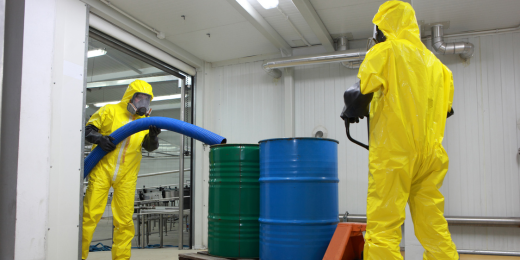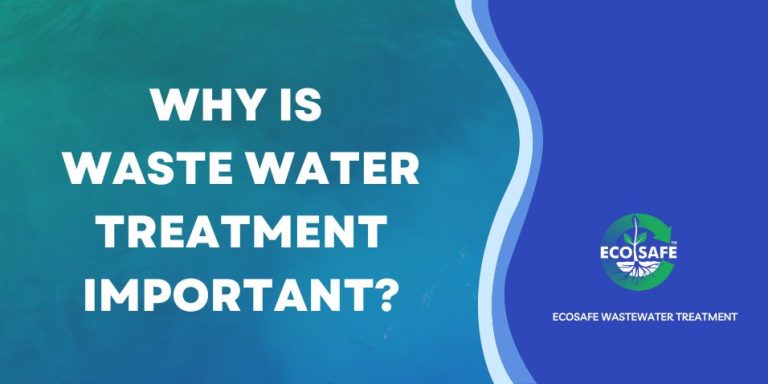Getting My Reclaim Waste To Work
Unknown Facts About Reclaim Waste
Table of ContentsAll about Reclaim WasteThe Only Guide for Reclaim WasteReclaim Waste Things To Know Before You BuyThe Single Strategy To Use For Reclaim WasteWhat Does Reclaim Waste Mean?
Residential sewage waste refers to the waste and products from a household septic container. The correct administration and disposal of residential sewage waste call for liquid waste to be transferred to a sewer therapy plant where the appropriate methods and devices are used to cleanse and dispose of waste.
Business waste usually consists of potential hazards, such as flammable products or a combination of liquid and strong waste products, and calls for a more advanced and thorough disposal process. The disposal of business waste usually entails the filtration of waste prior to transportation to ensure secure and proper disposal. Hazardous waste is developed from byproducts and drainage of industrial procedures and production.
This kind of waste can not make use of the very same sewage monitoring transport or processes as septic or commercial fluids. The hazardous waste administration process needs the examination and testing of liquid waste prior to it goes through the disposal process (liquid waste disposal melbourne). Runoff waste is the fluid waste that comes from runoff and excess stormwater in extremely booming locations or cities
Drainage waste can create contamination and flooding if not dealt with properly. Making certain proper waste monitoring can avoid calamities and minimize environmental harm.
Top Guidelines Of Reclaim Waste
Get in touch with PROS Services today to find out about our waste administration and disposal solutions and the correct methods to look after the fluid waste you produce.
(https://www.domestika.org/en/reclaimwaste1)Do you know what happens to your water when you draw the plug, flush the toilet or drain pipes the washing machine? No? Well, it's worth recognizing. This so-called 'wastewater' is not only an essential resource but, after treatment, will certainly be released to our land, rivers or the ocean. Used water from commodes, showers, baths, cooking area sinks, laundries and commercial processes is recognized as wastewater.

water utilized to cool down machinery or clean plant and equipment). Stormwater, a type of wastewater, is runoff that streams from farming and city locations such as roofs, parks, yards, roads, courses and gutters into stormwater go now drains pipes, after rainfall. Stormwater flows without treatment directly to neighborhood creeks or rivers, at some point reaching the ocean.
Some Ideas on Reclaim Waste You Should Know
In Queensland, a lot of wastewater is treated at sewage treatment plants. Wastewater is delivered from residential or commercial websites via a system of sewage systems and pump terminals, referred to as sewerage reticulation, to a sewage treatment plant. Regional governments develop, preserve and run most sewage therapy plants. Operators are certified under the Environmental Management Act 1994 to release treated wastewater at an appropriate ecological requirement into waterways.
The Department of Natural Resources encourages neighborhood federal governments regarding managing, operating and preserving sewerage systems and therapy plants. In unsewered locations, city governments may call for owners to mount private or household sewage treatment systems to deal with domestic wastewater from toilets, kitchens, restrooms and laundries. The Division of Natural Resources authorizes using house systems when they are proven to be reliable.
A lot of stormwater receives no therapy. In some new neighborhoods, therapy of some stormwater to eliminate litter, sand and gravel has begun utilizing gross pollutant catches. Wastewater treatment occurs in 4 stages: Removes strong matter. Bigger solids, such as plastics and other things mistakenly discharged to sewage systems, are eliminated when wastewater is passed with screens.
Utilizes small living organisms understands as micro-organisms to damage down and remove staying liquified wastes and great particles. Micro-organisms and wastes are incorporated in the sludge.
Some Ideas on Reclaim Waste You Need To Know
Nutrient removal is not available at all sewage therapy plants due to the fact that it requires pricey specialized tools. Clear fluid effluent created after treatment may still include disease-causing micro-organisms - liquid waste disposal.

A lot of wastewater flows into the sewerage system. Under the Act, local federal governments administer authorizations and licences for eco appropriate activities (Periods) involving wastewater launches that might have a neighborhood effect.
Everything about Reclaim Waste
Monitoring offers accurate info regarding water top quality and can confirm that licence conditions are being met. The info acquired with surveillance offers the basis for making water high quality choices.